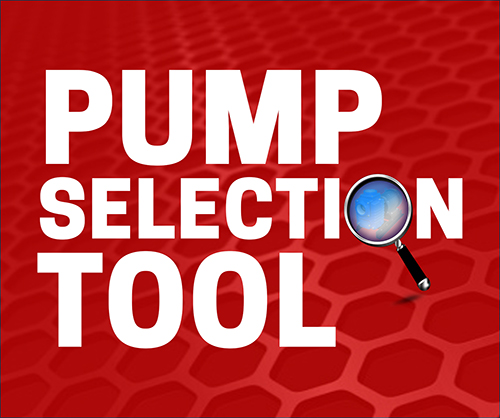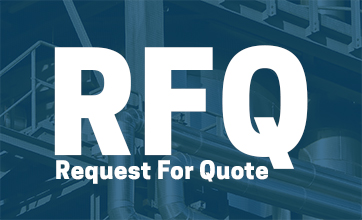When Should You Buy an ANSI Water Pump?
- By Aaron Jameson
- Feb 27, 2024
In the realm of fluid handling equipment, ANSI water pumps stand out as versatile and reliable solutions for a myriad of industrial and commercial applications. ANSI, which stands for American National Standards Institute, sets the standard for these pumps, ensuring quality, efficiency, and compatibility.
How are ANSI Water Pumps Different from Other Kinds of Water Pumps?
Following these standards means that an ANSI water pump offers uniformity in design, dimensions, and performance. Thanks to these nationalized standards, you’ll reap the benefits of interchangeable parts, simplified maintenance, and reduced downtime. What’s more, ANSI pumps are specifically engineered for durability — with robust materials and construction techniques — making them ideal for demanding applications.
Benefits of ANSI Water Pumps
ANSI water pumps offer a standardized design that allows for seamless integration into existing systems, offering compatibility and easy installation. These pumps are also exceptionally reliability and offer a long service life while minimizing the risk of breakdowns and enhancing operational efficiency. Additionally, their efficient performance translates to reduced energy consumption and lower operating costs, making them a cost-effective solution for fluid handling needs.
Common Applications and Industries for ANSI Water Pumps
- Chemical Processing: In chemical processing plants, ANSI water pumps play a crucial role in handling corrosive and abrasive fluids with precision and reliability. These pumps are designed to withstand the harsh conditions often encountered in chemical processing, where the transfer of acids, solvents, and other aggressive chemicals is required. ANSI pumps provide safe and efficient movement of these substances throughout the production process, ensuring the integrity and efficiency of chemical manufacturing operations.
- Petroleum Refining: In the petroleum refining industry, ANSI water pumps are indispensable for various applications, including crude oil transfer, refining processes, and wastewater treatment. These pumps are engineered to handle the demanding conditions found in refineries, where they are tasked with transferring highly viscous fluids, such as crude oil and petroleum products, across the refining stages. ANSI pumps ensure the smooth operation of refining processes, contributing to the production of high-quality fuels and lubricants.
- Power Generation: ANSI water pumps are crucial for power generation facilities, where they play an important role in cooling systems, boiler feed applications, and wastewater management. These pumps can handle high temperatures and pressures commonly encountered in power plants, ensuring the efficient circulation of water and other fluids essential for power generation processes. ANSI pumps ensure the reliable operation of power plants, helping to maintain optimal operating conditions and maximize energy output.
- Water Treatment: In water treatment facilities, ANSI water pumps are instrumental in various treatment processes, including filtration, disinfection, and distribution. These pumps can handle raw water intake, chemical dosing, and the movement of treated water throughout the distribution network. By ensuring the efficient and reliable treatment of water, ANSI water pumps contribute to public health and environmental protection by providing clean and safe drinking water to communities.
- HVAC Systems: For heating, ventilation, and air conditioning (HVAC) systems, ANSI water pumps are used for circulating chilled water, hot water, and condenser water in building HVAC systems. These pumps deliver precise flow rates and pressures required for efficient HVAC operation, ensuring optimal comfort and energy efficiency. Contributing to the effective cooling and heating of buildings, ANSI water pumps reduce energy consumption and operating costs while maintaining indoor comfort levels.
Different Types of ANSI Water Pumps
- End Suction Pumps: End suction pumps are a common type of ANSI water pump characterized by a single inlet and a horizontal shaft. These pumps are widely used for general-purpose applications, including water supply, irrigation, and HVAC systems. End suction pumps are known for their simplicity, reliability, and ease of maintenance, making them suitable for a wide range of industrial and commercial applications.
- Inline Pumps: Inline pumps, also known as close-coupled pumps, feature a compact design with the motor mounted directly onto the pump casing. These pumps are ideal for space-constrained installations where a small footprint is required. Inline pumps are commonly used in water supply systems, cooling towers, and circulation applications, where efficient fluid transfer is essential.
- Horizontal Split-Case Pumps: Horizontal split-case pumps feature a split casing design with the impeller mounted on a horizontal shaft. These pumps are designed for high-flow, high-pressure applications, such as water supply, firefighting, and irrigation systems. Horizontal split-case pumps are known for their robust construction, efficient performance, and ease of maintenance, making them suitable for demanding industrial and municipal applications.
- Vertical Turbine Pumps: Vertical turbine pumps are vertically oriented pumps with the motor mounted above the pump bowl. These pumps are used for applications requiring high flow rates and deep well installations, such as groundwater supply, irrigation, and municipal water supply. Vertical turbine pumps are capable of pumping water from deep underground sources, making them ideal for applications where a reliable water supply is essential.







